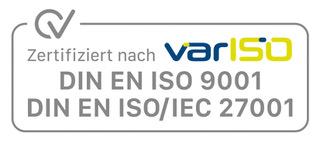Information on Learning Platforms & eLearning for Corporate Training & Academies
Our FAQ provides practical insights and reliable information on the most relevant topics around digital learning platforms. Whether you are selecting a new system, integrating existing solutions, or improving usability, here you will find both strategic and technical guidance to support your decision-making.
What is the difference between a Learning Platform, an eLearning Platform, and a Learning Experience Platform (LXP)?
An eLearning platform in the narrow sense focuses on video tutorials and web-based training. It enables creation, playback, and tracking of content (e.g., via SCORM or xAPI). The learning path is usually structured and linear.
A broader learning platform combines digital content with classroom training and online workshops. It manages seminar bookings, event logistics, and resources, often linked to qualification management.
Learning Experience Platforms (LXP) use AI to create personalized learning paths and recommendations. They analyze user behavior to deliver relevant content and often build on a Learning Management System (LMS).
How can an e-learning platform be integrated into existing IT systems?
Seamless integration is essential for the long-term success of any learning solution. Modern platforms support common interfaces and APIs such as SCORM, xAPI, and LTI (Learning Tools Interoperability), ensuring connectivity with HR systems, talent management software, and other enterprise applications.
Example: Through LTI interfaces, training content can be embedded directly into employee portals without requiring users to switch between multiple platforms.
When evaluating a solution, consider how flexibly it supports extensions and custom workflows. An open architecture and regular updates are key to future adaptability.
What role do security & data protection play in e-learning?
Data security and privacy are top priorities, particularly when handling employee-related information. Reliable learning platforms employ encryption technologies, multi-factor authentication, and regular security updates to safeguard data against unauthorized access.
Compliance with regulations such as the EU GDPR is mandatory. This includes transparent data processing, user consent, and rights to access and delete personal data.
Tip: Before implementation, review how the provider documents compliance certifications and data protection policies.

How is user-friendliness ensured in a learning platform?
Strong usability is essential for learner engagement and acceptance. Key factors include intuitive, well-structured interfaces, straightforward navigation, and responsive design for mobile devices.
Platforms should also address the needs of different user roles (learners, trainers, administrators) through tailored dashboards and provide accessibility features such as screen reader support, captions, or adjustable font sizes.
Practice: Interactive elements such as quizzes, discussion forums, or real-time feedback further enhance user engagement and the overall learning experience.
Strategic factors to be considered when selecting an e-learning platform?
Beyond technical features, consider the following aspects:
- Flexibility: Can the platform support your growth plans and adapt to multiple learning formats and processes?
- Scalability: How well can it handle increasing user numbers or new use cases?
- Reporting & Analytics: Does it provide meaningful insights for measuring success and tracking qualifications?
- Support & Services: What level of assistance is offered during implementation and ongoing operation?
These strategic considerations help ensure a future-proof investment that aligns with long-term talent development goals.
Technical Requirements to be considered for implementation
Technical requirements depend on the hosting model (cloud or on-premise). For cloud solutions, a stable internet connection and compatible browsers are essential. On-premise solutions require suitable server infrastructure, regular maintenance, and in-house IT expertise.
Also ensure:
- Support for standard learning formats (e.g., SCORM, xAPI, PDFs, videos)
- Integration with webinar and collaboration tools
- Compliance with your organization’s IT security standards
A clear project plan involving all relevant IT stakeholders is critical to achieving a smooth rollout.

About SoftDeCC
Your Partner for Learning Platforms & Staff Development
For more than 25 years, SoftDeCC has supported companies and academies in selecting, implementing, and optimizing learning platforms. Our expertise includes technical consulting, tailored process adaptation, and ongoing support.
Discover TCmanager® LMS, our modular learning management system that adapts flexibly to your needs and integrates seamlessly into your IT landscape.
Call us for more answers: +49 89 - 3090 839 30
.webp)





